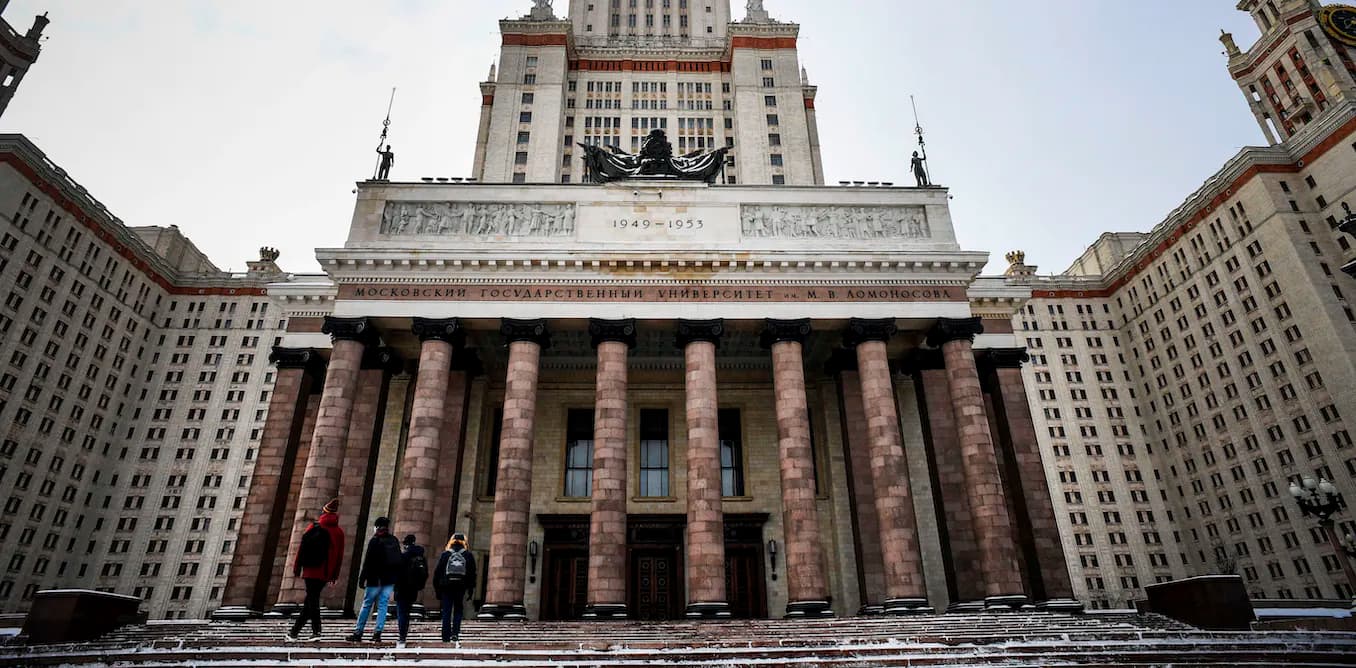As the world becomes increasingly interconnected, pursuing higher education in international institutions has never been more appealing. For many aspiring students, Russian universities offer a unique blend of academic excellence, cultural richness, and diverse learning experiences. However, gaining admission to these esteemed institutions requires more than just stellar grades and a passion for learning. Crafting a meticulously designed academic resume is your gateway to making a lasting impression on admissions committees.
In this comprehensive guide, we delve into the art of “Writing an Academic Resume for Russian Universities.” Whether you’re dreaming of studying engineering in Moscow, medicine in St. Petersburg, or economics in Kazan, your academic resume will serve as your initial introduction to Russian universities. It’s the key to showcasing your qualifications, achievements, and potential as a student.
Throughout this article, we will demystify the intricacies of crafting an academic resume that not only meets the stringent requirements of Russian universities but also sets you apart from the competition. From understanding the unique expectations of Russian higher education to formatting tips and standout strategies, we’ve got you covered.
So, whether you’re just embarking on your academic journey or seeking to enhance your application, let’s explore the world of academic resume writing and unlock the doors to Russian higher education together.
Understanding Russian Universities
When embarking on the journey of applying to Russian universities, it’s essential to have a solid grasp of the education landscape you’re entering. Russian universities are known for their rich academic traditions and high standards, making them attractive options for international students. Here’s what you need to understand:
- Diverse Range of Institutions: Russian higher education offers a wide spectrum of institutions, from prestigious research universities to specialized technical institutes. Each has its unique strengths and focuses, so researching and selecting the right fit is crucial.
- Admission Process: Russian universities often have rigorous admission processes. Typically, applicants need to pass entrance exams, and requirements can vary by program and institution. Understanding these requirements early in your academic journey is vital for success.
- Language of Instruction: While many Russian universities offer programs in English, a strong command of the Russian language can open up more opportunities. Some programs may require proficiency in Russian, so language preparation should be part of your strategy.
- Cultural Considerations: Beyond academics, embracing Russian culture and adapting to the local lifestyle can enhance your university experience. Familiarizing yourself with Russian customs and norms can help you integrate into the campus community more smoothly.
Components of an Academic Resume

A well-structured academic resume is your ticket to a successful application to Russian universities. Here’s a breakdown of the key components you should include:
- Personal Information and Contact Details: Begin with your full name, contact information, and a professional email address. Ensure your contact details are up-to-date and easily accessible.
- Educational Background and Qualifications: List your educational history, starting with the most recent institution. Include the name of the institution, dates attended, and degrees earned or in progress. Highlight relevant coursework or thesis projects if applicable.
- Academic Achievements and Honors: Showcase your academic accomplishments, such as scholarships, awards, or honors. Mention any publications, research projects, or academic conferences you’ve participated in.
- Research Experience (if applicable): If you have conducted research, detail your research projects, methodologies, and findings. Highlight how your research aligns with your intended course of study in a Russian university.
- Extracurricular Activities and Leadership Roles: Demonstrate your well-roundedness by mentioning involvement in clubs, sports, or community service. Emphasize leadership positions or significant contributions.
- Language Proficiency: Specify your language skills, both in English and Russian if applicable. Include any language proficiency tests you’ve taken, such as TOEFL or IELTS.
- References and Recommendations: If required, provide contact information for your references or attach recommendation letters. Ensure your references are willing and able to vouch for your academic abilities and character.
Formatting and Layout
The appearance of your academic resume is just as crucial as its content. A clean and well-organized layout can make a significant difference in how your resume is perceived by admissions committees. Here’s what you need to know about formatting and layout:
- Choosing the Right Resume Template: Begin by selecting a professional and visually appealing resume template. While creativity is encouraged, it’s essential to maintain a clean and organized look. Templates can help you achieve this balance.
- Font, Margins, and Spacing: Stick to standard fonts like Arial or Times New Roman, and use a font size of 10-12 points for the body text. Set consistent margins (usually 1 inch or 2.54 cm) and maintain uniform spacing throughout the document.
- Bullet Points and Lists: Use bullet points to break down information into easily scannable sections. This helps admissions officers quickly grasp your qualifications and achievements.
- Dos and Don’ts in Resume Design: Avoid overly colorful or complex designs that can distract from your content. Ensure your resume is easy to read, even in digital or printed form. Proofread for consistency in formatting and correct any typographical errors.
- File Format: Save your resume in a widely accepted format such as PDF to ensure that its formatting remains intact when viewed on different devices and systems.
Writing Your Academic Resume
Crafting the content of your academic resume is a strategic process. It should highlight your qualifications, achievements, and potential as a student. Here’s how to effectively write your academic resume:
- Crafting an Effective Objective Statement: Start your resume with a concise objective statement that clearly states your academic goals and why you’re applying to Russian universities. Tailor this statement to the specific institution or program whenever possible.
- Showcasing Your Educational Background: List your educational history in reverse chronological order. Include the name of the institution, dates attended, and degrees earned or in progress. Highlight any relevant coursework or thesis projects.
- Highlighting Academic Achievements: Showcase your academic accomplishments, such as scholarships, awards, or honors. Describe any publications, research projects, or academic conferences you’ve participated in.
- Emphasizing Research Experience: If applicable, detail your research projects, methodologies, and findings. Explain how your research aligns with your intended course of study in a Russian university.
- Including Extracurricular Activities and Volunteer Work: Demonstrate your well-roundedness by mentioning your involvement in clubs, sports, or community service. Emphasize any leadership positions or significant contributions.
- Demonstrating Language Proficiency: Specify your language skills, particularly in English and Russian if relevant. Include any language proficiency test scores, such as TOEFL or IELTS.
- Requesting and Formatting References: If required, provide contact information for your references or attach recommendation letters. Ensure your references are willing and able to vouch for your academic abilities and character.
Tips for Making Your Resume Stand Out
Crafting an academic resume for Russian universities is not just about meeting the standard requirements; it’s about making a lasting impression. Here are some additional tips to ensure your resume stands out in the competitive application pool:
- Customize for Each University: Tailor your resume to the specific requirements and preferences of each Russian university you’re applying to. Highlight elements of your academic and extracurricular background that align with their programs and values.
- Include Relevant Coursework: If you’ve completed coursework directly related to your intended field of study in Russia, mention it prominently. This demonstrates your preparedness for the program.
- Highlight International Experience: If you have international exposure, such as studying abroad or participating in global initiatives, emphasize this. It showcases your adaptability and cross-cultural competence.
- Quantify Achievements: Whenever possible, use quantitative data to illustrate your achievements. For example, mention the percentage improvement in a project’s outcomes or the number of events you organized as part of a club.
- Show Growth and Progression: Describe how your academic and extracurricular activities have evolved over time. Highlight promotions, increasing responsibilities, or the development of new skills.
- Demonstrate Problem-Solving Skills: Describe instances where you faced challenges and how you overcame them. Admissions committees value candidates who can adapt and persevere in the face of difficulties.
- Highlight Interdisciplinary Skills: If your academic background spans multiple disciplines, emphasize how this unique combination of knowledge can contribute to a diverse learning environment.
- Utilize Action Verbs: Start bullet points with action verbs like “organized,” “analyzed,” “implemented,” or “solved” to convey a sense of proactivity and accomplishment.
- Keep It Concise: While providing comprehensive information is essential, strive for conciseness. Aim for a one-page resume if possible, and avoid including unnecessary details.
- Seek Feedback: Have peers, mentors, or professionals in your field review your resume. Fresh perspectives can help identify areas for improvement and ensure clarity and coherence.
By incorporating these additional strategies, you’ll not only meet the criteria for an academic resume but also create a document that leaves a memorable impression on Russian university admissions committees. Remember that your resume is a reflection of your unique qualifications and potential, so make it shine.
Conclusion
In conclusion, mastering the art of “Writing an Academic Resume for Russian Universities” is a pivotal step in your journey toward higher education in Russia. Crafting a compelling resume that reflects your academic achievements, extracurricular involvement, and potential as a student is essential. A well-crafted academic resume can set you apart in the competitive admissions process.
As you prepare to submit your application to Russian universities, remember that your academic resume serves as your initial introduction to admissions committees. It’s a testament to your qualifications and your commitment to academic excellence. By following the guidelines and tips provided in this article, you can ensure that your resume not only meets the standards but also showcases your unique strengths and aspirations.
We encourage you to approach the resume-writing process with dedication and attention to detail. Tailor your resume for each university, emphasize your accomplishments, and convey your passion for your chosen field of study. With a standout academic resume in hand, you’ll be well-prepared to embark on the exciting journey of pursuing higher education in Russia.
FAQ
1. Do Russian universities require a specific format for academic resumes?
While there may not be a universally mandated format, it’s essential to maintain a clean and professional appearance. Utilize a template that is easy to read, and ensure consistent formatting throughout your resume.
2. Is it necessary to include personal information like a photograph or date of birth on my academic resume for Russian universities?
In most cases, it is not necessary or recommended to include personal information like photographs or birthdates. Focus on academic and relevant extracurricular information.
3. Can I submit my resume in a language other than Russian or English?
It’s advisable to submit your resume in either Russian or English, depending on the language of instruction at the university you’re applying to. English-language programs may accept resumes in English, while Russian-language programs typically require resumes in Russian.




